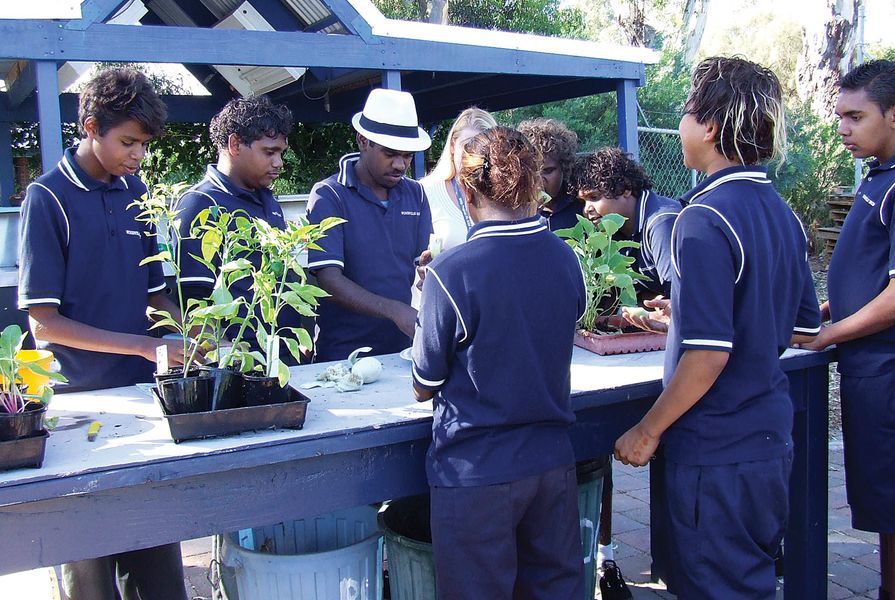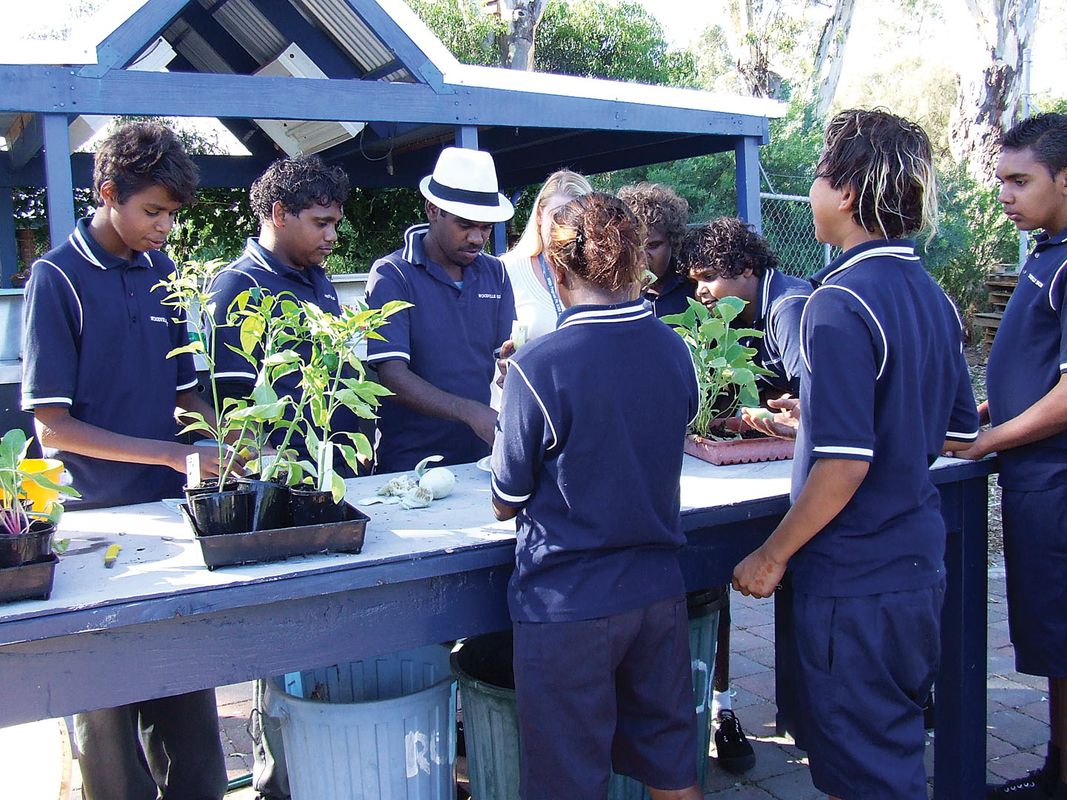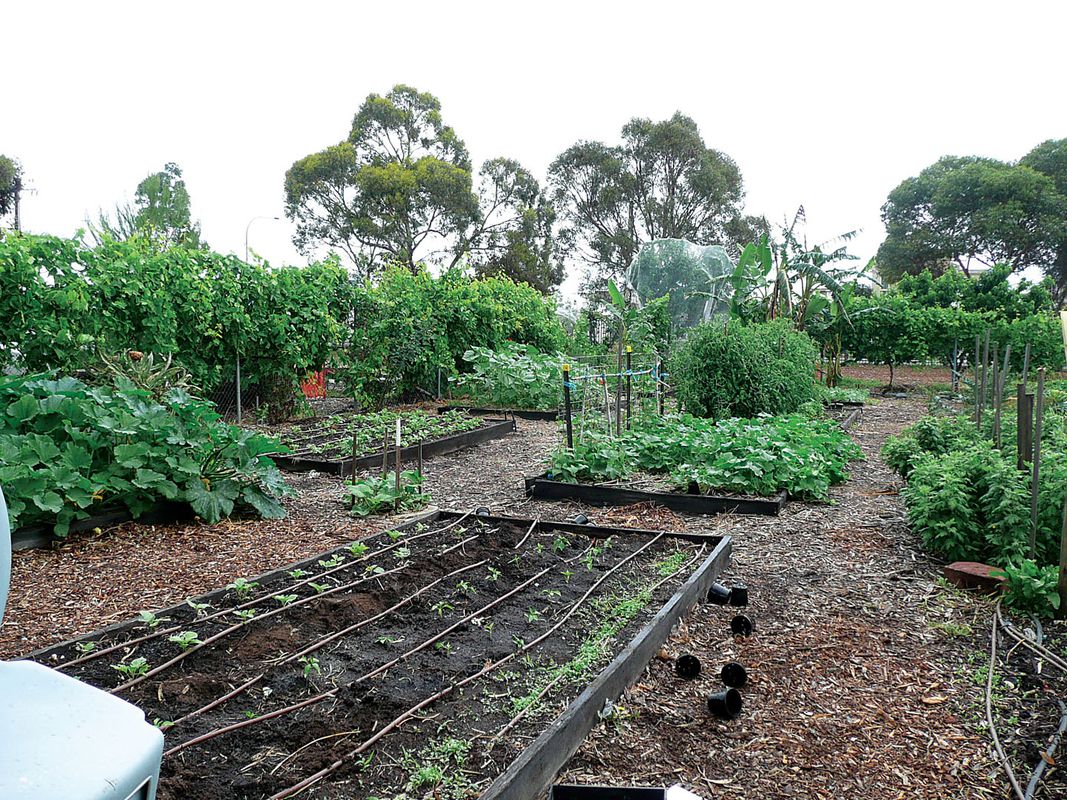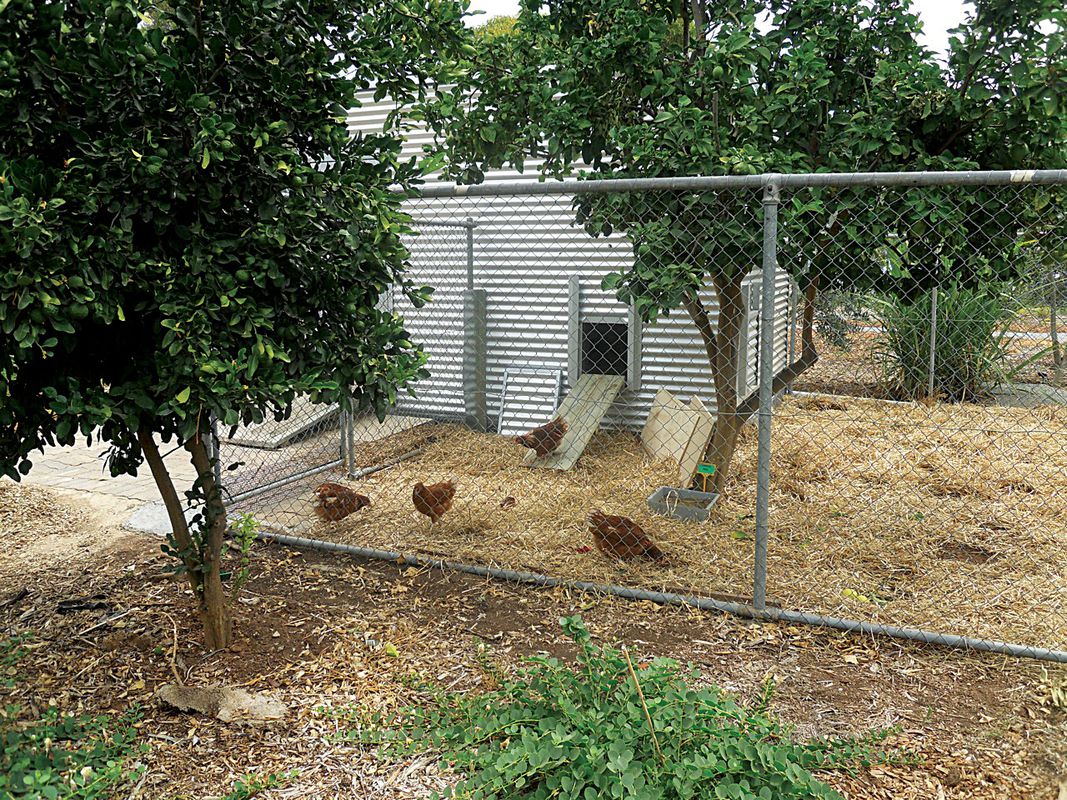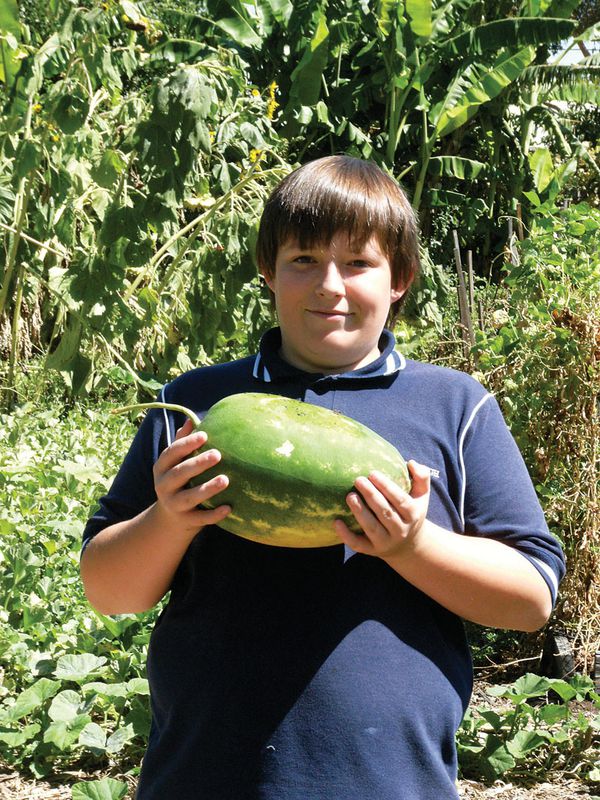The global popularity and diversity of community gardens is increasing exponentially, with the recognition that they contribute to the health of cities while building a sense of community. In the western suburbs of Adelaide, Woodville High School’s (WHS) Community Garden Hub demonstrates innovation in learning, the value of positive collaboration and ways towards a sustainable future. In the framework of the exhibition Bloom: Healthy Spaces, the garden demonstrates an approach where everyday learning landscapes influence communities through education, sustainability and health. The garden has been built thanks to the generosity of many individuals and their enthusiasm for working together to create a new space in their community.
The Garden Hub is an extension to an existing garden built in 2002 as an initiative of the Alternative Programs and Sponsorship program of WHS. The original garden site transformed an underutilized sports oval and provided an alternative learning environment that could support the Garden Therapy program for students with learning challenges.
In 2010, the school received government funding to expand the garden into a community garden. WHS engaged local landscape architects, Outerspace, to develop a staged masterplan for the site. In consultation with the school, community, state government and local government, Outerspace has developed a design that reflects and fosters the values of the school: community, connectedness, multiculturalism, innovation, respect and an enthusiasm for learning.
As noted, the garden is a collaborative project. With the assistance of volunteer community mentors, Christine Hensel (landscape architect) and Jo Crawford (artist), students and staff are constructing the first stage with a budget of only fifty thousand dollars. This stage includes new pathways, entry, screening, community garden plots, a chook house, and extensions to the kitchen, shade house and storage facilities. Additional indigenous planting to the perimeter and relocation of existing structures will also be completed. The garden is encouraging new encounters, shared learning and problem-solving. Flexibility and innovation are important skills when translating the plan to site, and strong solutions have emerged from the collaborative nature of the project.
The Garden Hub is a site for learning about everyday sustainable practices. It demonstrates the benefits of productive gardens, indigenous planting, the impacts of climate and the importance of recycling materials. In Outerspace’s masterplan there will be increased rainwater harvesting, grey water and black water treatment, solar energy and composting. Converting the community to sustainable living may be a challenge, but the Garden Hub demonstrates that such an approach can be enjoyable and worth the effort.
A key aspect of the Garden Hub is the way the school integrates its teaching with the landscape. Innovation is a key part of the school curriculum and the garden supports multiple programs. These include Doorways2Construction, where students learn about construction; the Wiltja Nutrition Project, which educates students of the APY (Anangu Pitjantjatjara Yankunytjatjara lands); the previously mentioned Garden Therapy program; and the Allstars program for students with special needs. The community mentors involved in the garden are learning alongside the students and are seeing positive changes in students who typically find the classroom a challenge.
The Woodville High School Community Garden Hub has removed social and cultural barriers and invites an exchange between the school and its community. The fence between garden and schoolyard has literally been taken down and the school has created a place that is welcoming, transforming and stimulating. Those who visit and work in the garden gain the sense of ownership and pride that comes from being part of a relaxed social environment. The community has been given a new meeting place that encourages their diversity and participation. This is an evolving landscape project that demonstrates that learning can be creative, sustainable and a delight to experience.
Credits
- Project
- Woodville High School Community Garden Hub
- Design practice
- Outerspace Landscape Architects
Adelaide, SA, Australia
- Project Team
- Debbie Saegenschnitter, Aylwen Dennis, Christine Hensel, Jeff Glass, Brian Noone, Tim Lepley, Jo Crawford, Students from doorways2construction program.
- Site Details
-
Location
11 Actil Avenue,
Woodville,
Adelaide,
SA,
Australia
- Project Details
-
Status
Under Construction
Design, documentation 4 months
Category Education, Landscape / urban
- Client
-
Client name
Woodville High School
Website woodvillehs.sa.edu.au
Source
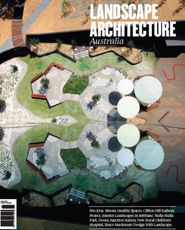
Review
Published online: 8 Apr 2016
Words:
Emma Wood
Images:
Brian Noone,
Christine Hensel,
Debbie Saegenschnitter
Issue
Landscape Architecture Australia, May 2012

